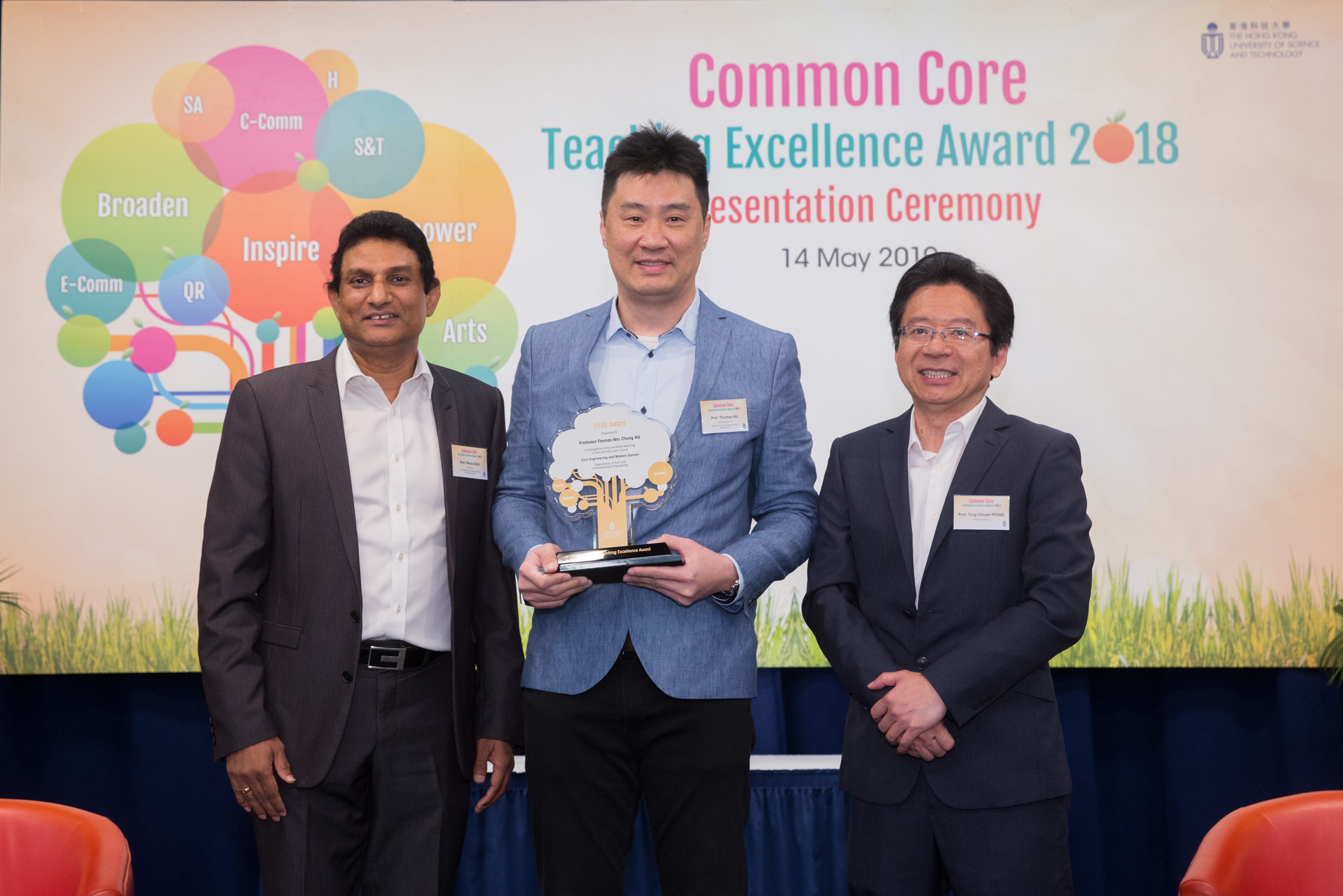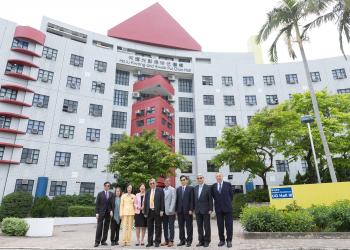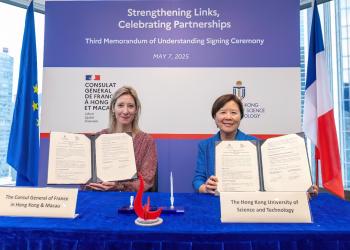Using Civil Engineering Mentality to Solve Real-world Problems
Hong Kong completed two mega infrastructure projects last year — the Hong Kong-Zhuhai-Macau Bridge and Guangzhou-Shenzhen-Hong Kong Express Rail Link — and six more are on the way. From highways to railways, few public services are untouched by the discipline of civil engineering. However, non-technical students may still not be aware of the extent of impact civil engineering has on our everyday lives.
Prof. Thomas HU of Civil and Environmental Engineering aims not only to transfer knowledge to the youth who may know nothing about civil engineering, but also instill in his students a critical and open mind. Since undertaking “Civil Engineering and Modern Society”, a Common Core course, in early 2016, he has turned it into one of the most practical and popular courses at HKUST, helping students from all sorts of disciplines understand how Hong Kong’s key issues can be solved from a civil engineering perspective.
This is no easy task, for doing so requires a deep understanding of the subject, and also the ability to teach with infectious enthusiasm. These are the qualities Prof. Hu possesses in spades, and it’s for this very reason he has been recently awarded the 2018 Common Core Teaching Excellence Award. He also obtained the highest undergraduate student evaluation scores for three consecutive years in his department from 2014 to 2017.
To grab the attention of his class of close to 200 students from diverse fields, Prof. Hu has to extend the scope of his course design beyond regular civil engineering topics and takes time to learn and understand each of his students’ backgrounds so he can customize projects that keep them engaged. Adopting a holistic and multidisciplinary approach, he builds bridges to timely new knowledge related to urban planning and development, legal and policy issues, and financial analysis, among others.
For example, due to the construction of To Kwa Wan MTR station of the Shatin to Central Link, local residents are worried that ground settlement problems could pose a threat to the safety of their buildings. To let his students know what settlement actually means, Prof. Hu took them to different locations near the To Kwa Wan station to measure the settlement levels and obtain first-hand information as a crucial part of the experiential learning process.
Moreover, Prof. Hu states that students, regardless of their major and pathway after graduation, grasping the fundamentals of civil engineering is helpful to them and to Hong Kong. “Civil engineering and maths I teach can help my students understand how the city’s problems, such as housing shortages and sky-high property prices, can be dealt with,” he says. “The root causes of the problems lie in the government’s huge land premium combined with high property development costs. Lowering the land premium ought to be paid by developers while buyers pay the government the remaining premium over the next 30-40 years will be a win-win situation where Hong Kong people can afford a decent flat and the government still has the revenue from land sales.” Through group projects tackling real-world cases, students gain constructive experience and realize the links between university learning and pragmatic solutions to improve people’s lives.
Prof. Hu’s pedagogy boils down to one approach: “I use soft solutions to hard problems,” he says. He provides his students with the latest handheld CAS (Computer Algebra Systems) graphing calculators, enabling them to solve complex mathematical problems in seconds, not minutes. Freeing students from mundane calculations also gives them more time to concentrate on the more rewarding aspects such as designing and creating physical models.
Prof. Hu is not just a brilliant teacher; he has a keen sense of the broader issues that influence engineering studies and professions in Hong Kong. “There is an impression that engineering is very dull and demanding,” he explains, adding that engineering both as a field of study and as a career can be time-consuming and intense, but he argues the payoffs and satisfaction can be immensely rewarding.
In both his outlook and delivery, Prof. Hu serves as an outstanding example of how to work toward and attain Common Core aspirations: to broaden students’ horizons, to inspire a passion for learning, and to empower their development as compassionate, responsible, and ethical citizens.









